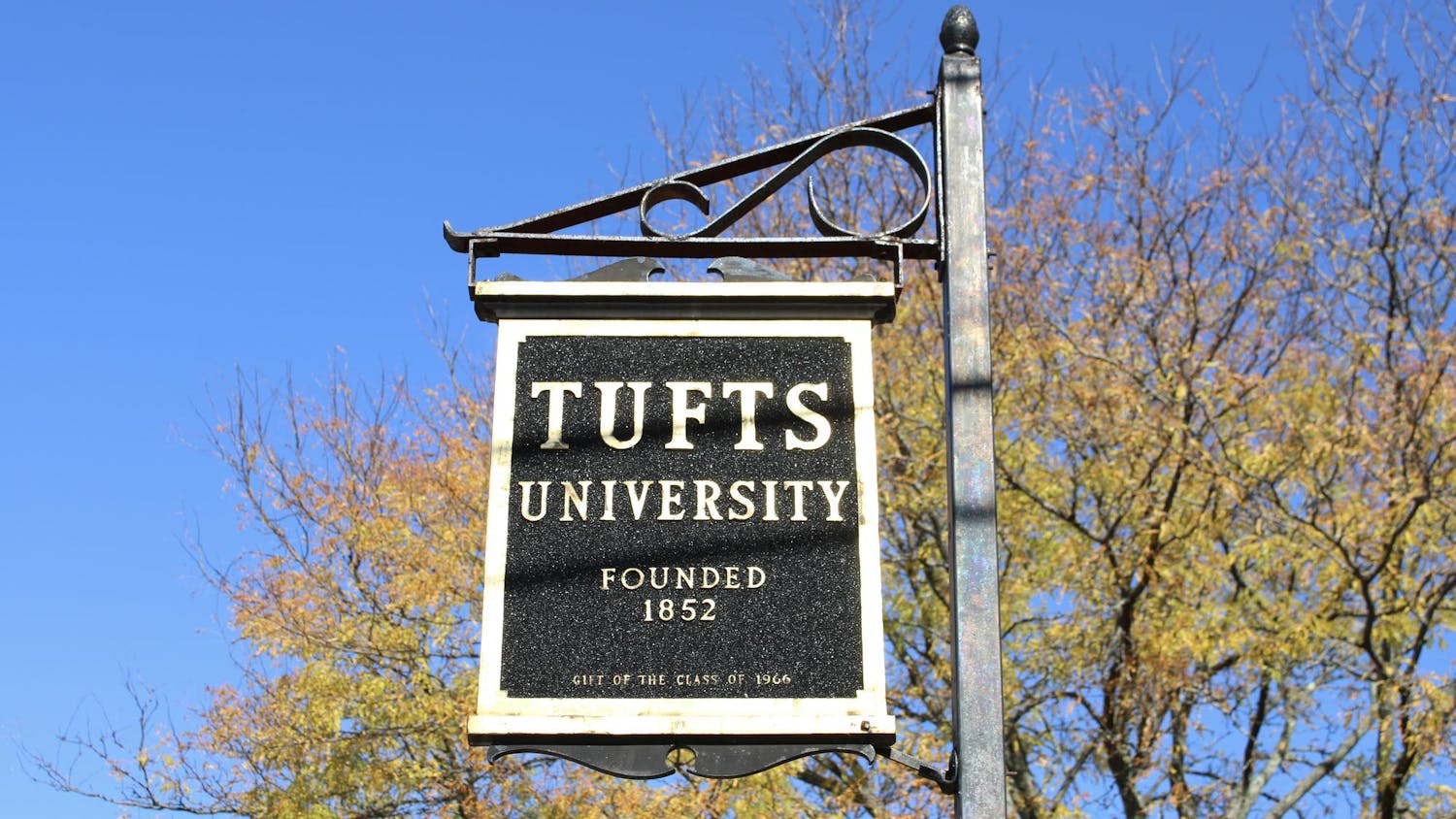Imagine you, a Tufts student, are sitting in front of Ballou Hall, along with several others, protesting for Tufts to divest from a nation you feel is an apartheid state. Officers are physically trying to move you and threatening you with felony charges. Soon after, Tufts places you on disciplinary probation for the semester. This should not take much imagination, because this was reality for several Tufts students last spring. This is the system of governance you live under as a member of the Tufts community per the Tufts’ Student Code of Conduct. If you violate the code, you are punished. This punitive structure is dogmatic and unproductive. After all, we are speaking and writing articles about the consequences for the protestors rather than a conversation between Tufts Administration and those pro-divestment taking place. Tufts’ disciplinary structure humiliates its students and silences constructive dialogue. At its core, it is control driven, reductive and contradictory to Tufts’ mission of inspiring critical thinkers.
Punitive structures have been accepted as the norm for our society, and for many it is the only structure we can fathom. When Adam gave into evil and ate the forbidden fruit, he forced God’s hand in condemning us to a life of toil and mortality. Such is the story of man’s first sin and the punishment that has burdened him since. Our existence itself is God’s punishment, only completely forgiven through faith in Jesus and repentance. Renditions of this story are repeated in religious texts around the world. The stories and their message of obedience are foundational in our society. It can even be seen in kindergarten classes where students are told to be quiet while the teacher speaks, but they disrupt anyways and are put in the timeout corner, only to return when they are embarrassed enough to have learned their lesson. Ingrained into our brains since our first conscious moments is the concept of following the rules. In this punitive system that we have established as the norm, we hope that children will live consistently within the rules, in fear of the punishments that lie outside of these confines. Educational institutions like Tufts rely upon this system because it allows them to control their student body. In our capitalist society, control is positively correlated with profit. Consequently, our educational institutions sacrifice our rights, like that to protest, for their self-interest as a business. They value their correctional nature over the education that public demonstration and its following dialogue catalyzes for us. Ironically, Tufts now celebrates the anti-apartheid protests that occurred at Ballou Hall in the 1990s with posters in the Mayer Campus Center, although these protests are only profitable for Tufts retrospectively.
There is hypocrisy between Tufts’ mission statement and their actions in response to protest. Tufts preaches their collaborative and “student-centered” learning style that fosters active citizenship and the application of knowledge. Yet, in the face of protest, a prime example of engagement with teaching, learning and humanity, Tufts responds with academic probation charges. Their code of conduct contradicts their mission, and more importantly, it takes precedence over it. Students are also asked to write letters, pages in length, to the administration to apologize for their actions and explain why they were wrong. This form of repentance does not lead to progress. It humiliates the student by forcing them to essentially repeat, for pages, that they are wrong and will not repeat their actions. There is little justice in this system, and there is certainly no learning. Students are left demoralized and conditioned not to think critically again. They are effectively told not to challenge the systems in place. You, a longtime citizen in this punitive structure, might think of this as a good thing. If everyone challenged every rule, there would be no order or forward progress. However, I ask you to question this preconceived notion. I ask you: “Why are these rules in place and what lies beyond the confines they place on us?” This critical question is the essence of protest, not a desire for anarchy, a privileged naivete or a tendency for violence. The spirit of protest is the construction, not the destruction, of a more fair world. Protests are restorative and justice-driven, as they intend to create conversation around injustice. To punish protestors with unfair penalties is to reinforce the validity of the protest.
Unfortunately, in the case of Isaac Leib, a third-year Tufts student who protested for divestment from Israel on Nov. 17, 2023, Tufts’ punitive process demoralized him and his activism. When asked about his experience, he said, “It’s been pretty rough. There’s a ton of people at Tufts, students and faculty, who were super supportive … but the systems that are in place are so anti-student, it feels like.” Since he had received disciplinary violations from previous pro-Palestine protests, Leib had already been put on probation and stripped of his study abroad privileges. When he decided to protest for divestment again in November, his probation was extended. Fortunately, Leib lives in Somerville, so finding a place to live during the time he planned on studying abroad was not a problem. However, he said that Tufts provided him no support throughout this process. If it were you being punished, would you have somewhere to live? Or would Tufts’ disregard for your circumstances leave you helpless and guilty? Would you have the courage to ask the administration for help? Or would their cutthroat policy and treatment of punishment as finality be too intimidating? After all, what happened the last time you voiced your call for help?
This outdated justice system continues today, as Tufts recently imposed a suspension on the university’s chapter of Students for Justice in Palestine. It is a justice system with the facade of providing guidance, but an intention of maintaining control and generating profit for the institution at the cost of the students’ innovative and critical thought. Yet, we submit to it. We accept this system as the only possible one. We accept Tufts’ hypocrisy, as they advertise and pride themselves on their inquisitive student body and their tendency to trailblaze and advocate for change, but then punish those who embody those values in protest. We are so conditioned by society and educational institutions to follow the rules that we do not dare to challenge this system. We limit ourselves and our rights. As a result, we stigmatize the concept of breaking the rules. To return to the kindergartener in the timeout corner at the beginning of this article, after the punishment, they not only do not disrupt the teacher again, the relationship between them and their teacher is poisoned. They are victims of a justice system that makes them feel subservient, obedient and antagonized. I ask you to question the validity of this system if we are to raise a generation that retains the desire for protest and critical thinking that is so crucial in learning.
Ryan Rizvi is a freshman at Tufts University.





